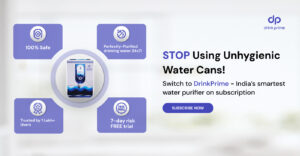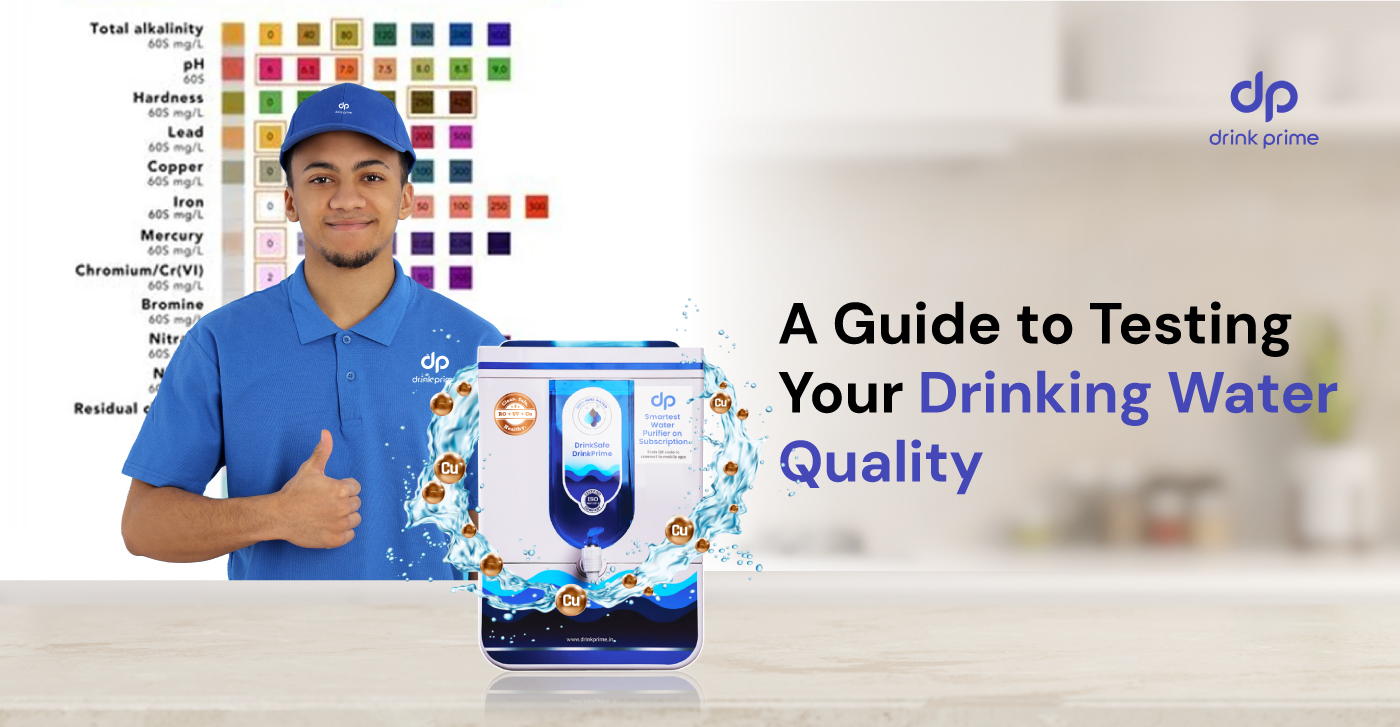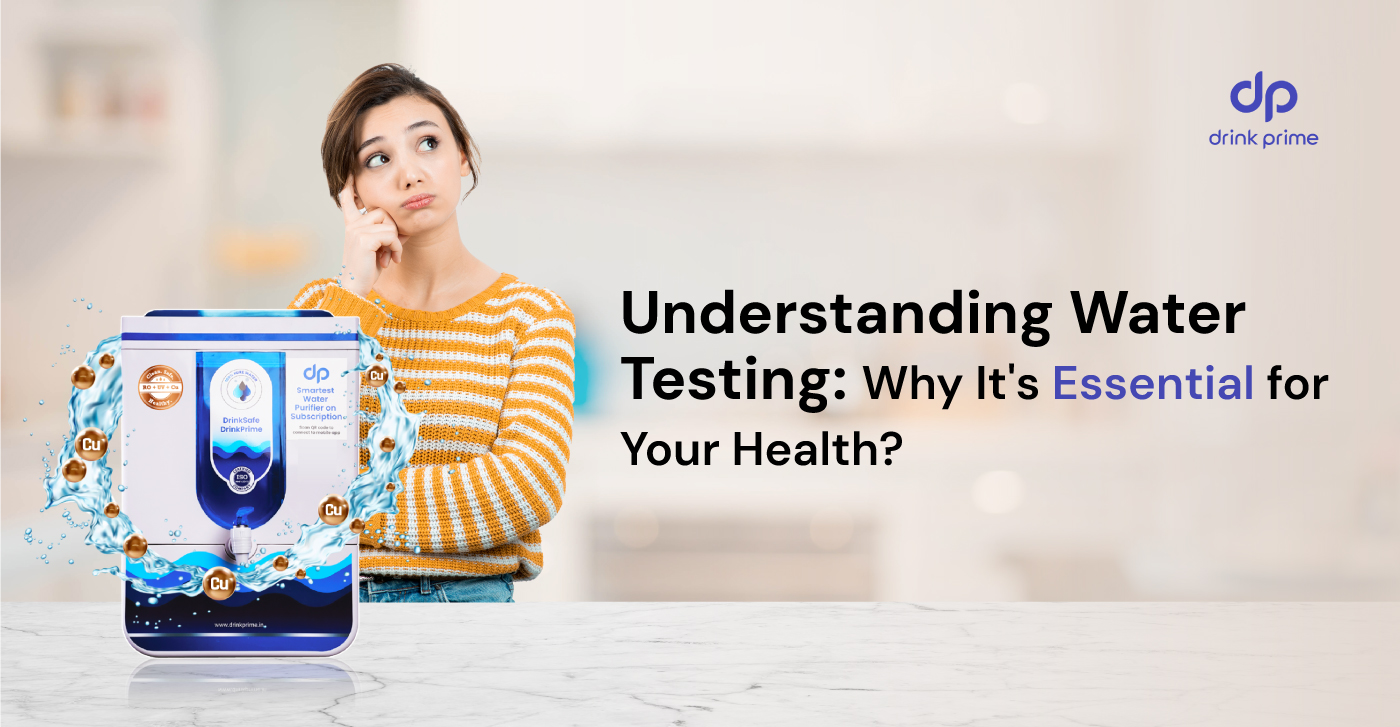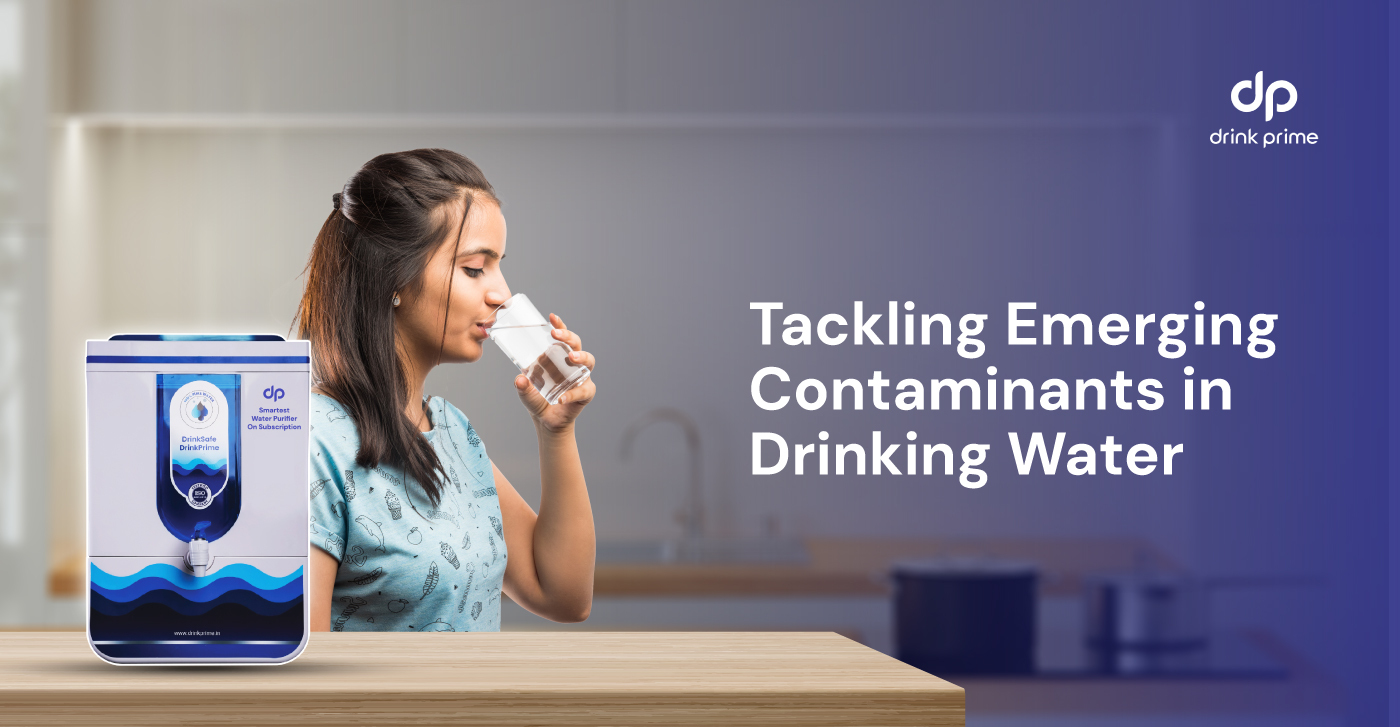Have you ever wondered about the water that comes straight from your tap? Is it as safe and pure as it seems?
If you are worried about drinking tap water, you’re not alone!
We often take our drinking water for granted, assuming it’s safe and devoid of contaminants. However, some variables can make tap water not suitable for drinking.
But worry not! We don’t discourage you from drinking water entirely. Instead, we would like to emphasize the importance of drinking high-quality water because it has a direct impact on your health and well-being.
Why is drinking tap water harmful?
Tap water is a convenient and easily accessible source of hydration. But it is not always the best option for your health. Tap water contains a variety of toxins, chemicals, and impurities that may have a negative impact on your well-being and health.
One of the primary concerns about consuming tap water is the presence of pollutants. Water treatment plants work hard to eliminate dangerous compounds, but some contaminants may still make their way into the water supply. Heavy metals can seep into the water through aged pipes and plumbing systems. Pesticides can also contaminate water supplies and pose health hazards if consumed.
Related Reading: How Tap Water is Damaging Your Hair, Skin, and Nails?
10 Reasons To Avoid Drinking Tap Water
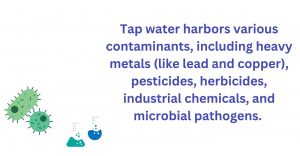
Here are ten strong reasons why you should think twice about consuming tap water:
1. Contaminants
If ingested on a daily basis, the contaminants in tap water pose long-term health hazards.
2. Chlorine and Disinfection Byproducts
Water treatment facilities often use chlorine to disinfect tap water. However, the disinfection process could produce disinfection byproducts, which have been associated with negative health outcomes, including cancer.
3. Aging Infrastructure
Outdated and decaying water distribution systems can contribute to water contamination. Aging pipes constructed of lead leach harmful compounds into the water supply, especially in older buildings or areas with poor infrastructure upkeep.
4. Pharmaceutical Residues
Tap water often contains residues from pharmaceuticals and personal care products that entered the water system through human urine or incorrect disposal. The long-term effects of continuous exposure to these pharmaceutical residues have the potential to cause harmful illnesses.
5. Agricultural Runoff
Pesticides, herbicides, and fertilisers used in agriculture find their way into water sources through runoff. Drinking tap water contaminated with these agricultural chemicals definitely has adverse health effects.
6. Hormones and Endocrine Disruptors
Tap water has trace levels of hormones, like estrogen, and substances that damage the endocrine system. These disrupt hormone balance, which could lead to reproductive and developmental disorders.
7. Microplastics
Studies have shown that microplastics have been found in tap water. The possible health consequences of consuming microplastics are still being researched, but their presence in our drinking water raises worries about its safety.
8. Lack of Regulation
While tap water is regulated, there may vary in quality standards and enforcement across different regions. In some regions, water treatment systems may struggle to fulfill stringent criteria, leading to potential pollution.
9. Taste and Odour
Chlorine, minerals, or chemical substances in tap water could often cause an unpleasant taste or odour.
10. Access to Safer Alternatives
Safer drinking water options include filtered water, bottled water, and home water purification systems. These eliminate or decrease impurities, giving you peace of mind and better water quality.
Get 7 Days Risk Free Trial
Conclusion
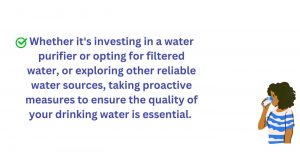
Familiarise with local water reports and regulatory assessments. These reports contain useful information regarding the presence of contaminants and the overall quality of the water supply.
One thing is certain: you must prioritise your health and safety by researching alternative drinking water options. Whether it’s investing in a water purifier, using filtered water, or looking into other reliable water sources, taking proactive steps to protect the quality of your drinking water is critical.
Making informed choices allows you to protect your health and enjoy a glass of water without compromising it!
FAQs
Is tap water safe to drink?
Tap water is generally safe to drink in many regions, as it undergoes treatment to remove harmful bacteria and contaminants. However, water quality can vary depending on the location and local water treatment processes. Using DrinkPrime purifier can ensure cleaner, better-tasting water for peace of mind.
How to make tap water safe to drink?
To make tap water safe to drink, you can use DrinkPrime water purifier with a filtration system that removes impurities, chlorine, and harmful bacteria. Boiling the water is another option, though a purifier is more efficient. Additionally, ensure your plumbing is well-maintained to avoid contamination.
What chemical is in tap water?
Tap water may contain various chemicals, including chlorine or chloramine for disinfection, fluoride for dental health, and minerals like calcium and magnesium. Depending on the source, trace amounts of pesticides, heavy metals, or other contaminants may also be present, which is why purification is recommended. DrinkPrime's multi-stage filtration process effectively purifies tap water, making it safe to drink.

